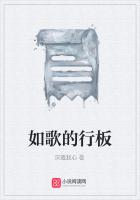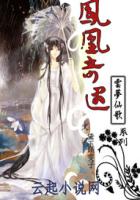"Oh! Conscientious as well as aesthetic. I see. And does Mr. Mavering put his artistic temperament into them?""His father does. He's a very interesting man. He has the best taste in certain things--he knows more about etchings, I suppose, than any one else in Boston.""Is it possible! And does he live at Ponkwasset Falls? It's in Rhode Island, isn't it?""New Hampshire. Yes; the whole family live there.""The whole family? Are there many of them? I'd fancied, somehow, that Mr. Mavering was the only----Do tell me about them, Etta," said Mrs.
Pasmer, leaning back in her chair, and fanning herself with an effect of impartial interest, to which the dim light of the room lent itself.
"He's the only son. But there are daughters, of course--very cultivated girls.""And is he--is the elder Mr. Mavering a--I don't know what made me think so--a widower?""Well, no--not exactly."
"Not exactly! He's not a grass-widower, I hope?""No, indeed. But his wife's a helpless invalid, and always has been.
He's perfectly devoted to her; and he hurried home yesterday, though he wanted very much to stay for Commencement. He's never away from her longer than he can help. She's bedridden; and you can see from the moment you enter it that it's a man's house. Daughters can't change that, you know.""Have you been there?" asked Mrs. Pasmer, surprised that she was getting so much information, but eager for more. "Why, how long have you known them, Etta?""Only since Dan came to Harvard. Mr. Saintsbury took a fancy to him from the start, and the boy was so fond of him that they were always insisting upon a visit; and last summer we stopped there on our way to the mountains.""And the sisters--do they stay there the whole year round? Are they countrified?""One doesn't live in the country without being countrified," said Mrs.
Saintsbury. "They're rather quiet girls, though they've been about a good deal--to Europe with friends, and to New York in the winter.
They're older than Dan; they're more like their father. Are you afraid of that draught at the windows?""Oh no; it's delicious. And he's like the mother?""Yes."
"Then it's the father who has the artistic taste--he gets that from him;and the mother who has the--"
"Temperament--yes."
"How extremely interesting! And so he's going to be a lawyer. Why lawyer, if he's got the talent and the temperament of an artist? Does his father wish him to be a lawyer?""His father wishes him to be a wall-paper maker.""And the young man compromises on the law. I see," said Mrs. Pasmer.
"And you say he's been going into Boston a great deal? Where does he go?"The ladies entered into this social inquiry with a zest which it would be hard to make the reader share, or perhaps to feel the importance of.
It is enough that it ended in the social vindication of Dan Mavering.
It would not have been enough for Mrs Pasmer that he was accepted in the best Cambridge houses; she knew of old how people were accepted in Cambridge for their intellectual brilliancy or solidity, their personal worth, and all sorts of things, without consideration of the mystical something which gives vogue in Boston.
"How superb Alice was!" Mrs. Saintsbury broke off abruptly. "She has such a beautiful manner. Such repose.""Repose! Yes," said her mother, thoughtfully. "But she's very intense.
And I don't see where she gets it. Her father has repose enough, but he has no intensity; and I'm all intensity, and no repose. But I'm no more like my mother than Alice is like me.""I think she has the Hibbins face," said Mrs. Saintsbury.
"Oh! she's got the Hibbins face," said Mrs Pasmer, with a disdain of tone which she did not at all feel; the tone was mere absent-mindedness.
She was about to revert to the question of Mavering's family, when the door-bell rang, and another visitor interrupted her talk with Mrs.
Saintsbury.
IX.
Mrs. Pasmer's husband looked a great deal older than herself, and, by operation of a well-known law of compensation, he was lean and silent, while she was plump and voluble. He had thick eyebrows, which remained black after his hair and beard had become white, and which gave him an aspect of fierceness, expressive of nothing in his character. It was from him that their daughter got her height, and, as Mrs. Pasmer freely owned, her distinction.
Soon after their marriage the Pasmers had gone to live in Paris, where they remained faithful to the fortunes of the Second Empire till its fall, with intervals of return to their own country of a year or two years at a time. After the fall of the Empire they made their sojourn in England, where they lived upon the edges and surfaces of things, as Americans must in Europe everywhere, but had more permanency of feeling than they had known in France, and something like a real social status.
At one time it seemed as if they might end their days there; but that which makes Americans different from all other peoples, and which finally claims their allegiance for their own land, made them wish to come back to America, and to come back to Boston. After all, their place in England was strictly inferior, and must be. They knew titles, and consorted with them, but they had none themselves, and the English constancy which kept their friends faithful to them after they had become an old story, was correlated with the English honesty which never permitted them to mistake themselves for even the lowest of the nobility.
They went out last, and they did not come in first, ever.
The invitations, upon these conditions, might have gone on indefinitely, but they did not imply a future for the young girl in whom the interests of her parents centred. After being so long a little girl, she had become a great girl, and then all at once she had become a young lady.
They had to ask themselves, the mother definitely and the father formlessly, whether they wished their daughter to marry an Englishman, and their hearts answered them, like true Republican hearts, Not an untitled Englishman, while they saw no prospect of her getting any other.















